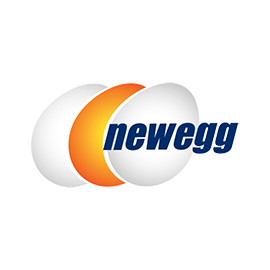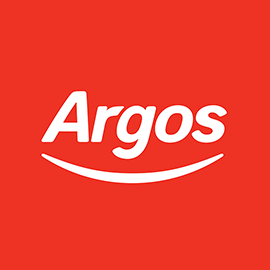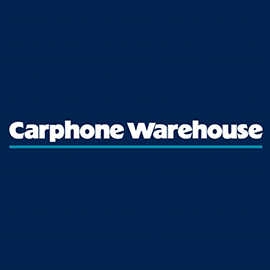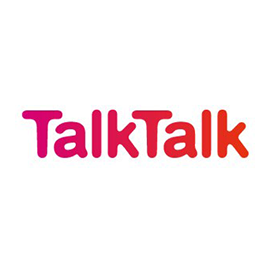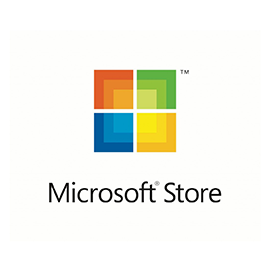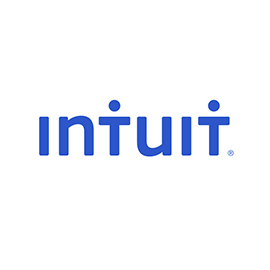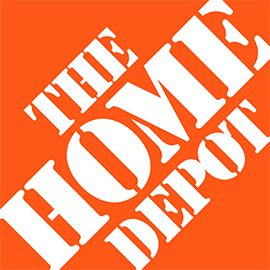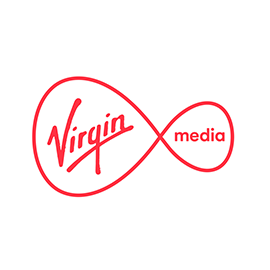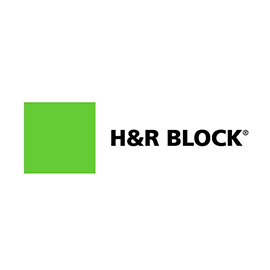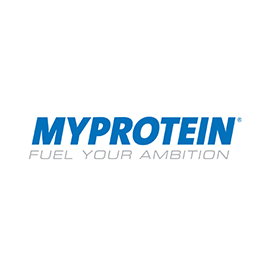
A content delivery network (CDN) works to accelerate almost any website by caching its files in servers around the world. Whether your visitors come from Europe, North America, Asia or anywhere else, content is automatically served from the nearest location for the fastest possible speeds.
If you’re new to the technology then it might seem intimidating, and there’s no doubt that prices can be high, but don’t let that put you off. A CDN is not just for massive corporations. You can set up the simplest services in less than five minutes, and if you choose your plan wisely, it might not cost you anything at all.
Whatever your website, from a simple blog to a sprawling site for a big business, we’ve picked out some of the best services around to help point you in the right direction. If you find anything that looks interesting, give it a try – you can explore many of these CDNs for free, without handing over payment details or signing up for any contract.
Cloudflare is a hugely popular American content delivery service which combines novice-friendly ease of use with expert-level features and functionality.
Setup is simple, with no need to edit your code. Just update your DNS nameservers to use Cloudflare and the service kicks in automatically, caching content and serving it to visitors from their nearest location.
But there’s much, much more. Web filtering can block bots, limit content spam, keep you safe from hackers or detect and mitigate DDoS attacks. Smart image optimizations can reduce image file sizes by up to 35%, further improving speeds. There’s wide support for standards like IPv6, HTTP/2 and SPDY, clever page rules to help you manipulate traffic, and a REST API allows developers to take full control of what the service is doing.
Cloudflare’s free plan allows you to see what the service can do, without making any commitments. It’s very usable, with unlimited bandwidth and no annoying restrictions to try and force you to upgrade.
Upgrading to the Pro plan costs a reasonable $20 (£16) a month, and adds the image optimization rules, extra configurability and improved support.
Whatever you choose, Cloudflare delivers great performance. As we write, the benchmarking site CDNPerf ranks Cloudflare at seventh place for worldwide HTTP request response times out of a field of 20 top CDNs.

Fastly provides CDN tricks for some really big organizations, including the likes of Spotify and Reddit, and the firm lives up to its name, delivering impressively fast performance levels. Going by the rough guideline of CDNPerf’s rankings, it’s the second fastest CDN for the UK, and worldwide speeds are mostly good, too.
Perhaps Fastly’s strongest point, however, is just how configurable the service is. For example, there’s diverse support for different types of video caching, and tons of low-level controls for those who want to get stuck into the likes of manipulating HTTP headers to customize how content is served.
Of course, some know-how is required to set up everything, and novices to the CDN world will doubtless be confused by all the options on offer. But for those who need this level of flexibility and configurability, it’s priceless to have.
Speaking of the price, Fastly operates a pay-as-you-go model with a minimum charge of $50 (£37) per month. In addition, you can test up to $50 of traffic for free.

KeyCDN is an easy-to-use budget CDN that might be a good pick for first-time users.
Getting started couldn’t be much simpler. Sign up with your email address and you get an immediate 25GB to play with, no payment details required. A well-designed web dashboard enables creating your first zone with the minimum of clicks, and there are guides to help you integrate the service with WordPress and other apps.
Worth mentioning is that as of late November 2018, KeyCDN fully supports IPv6.
More experienced users will appreciate options like Origin Shield – this allows you to specify a KeyCDN server to be the source for updates rather than the origin, reducing your server load. You’re able to manipulate headers, cache or strip cookies, or set up a custom robots.txt. Once the service is running, a capable set of reporting tools enable watching CDN performance in near real-time.
KeyCDN’s standout feature has to be its low prices. Bandwidth charges start at $0.04 (£0.032) per GB, less than half the price you’ll pay with some of the high-end competition. The minimum charge is a tiny $49 (£39) a year. (Yes, really – a year.) The company doesn’t even try to cash in on the extras, for example offering shared SSL and custom Let’s encrypt SSL certificates for free.
Perhaps unsurprisingly, these low prices don’t get you leading-edge performance, but there’s still plenty of power here and you do get a lot for your money.

MetaCDN is an Australian company which combines the CDNs of Amazon Cloudfront, Fastly and Verizon’s EdgeCast into a single speedy service.
Why? It’s all about performance. When a visitor accesses your site, MetaCDN has three networks and more than 120 locations to choose from – way more than anyone else. In other words, there’s a much greater chance any visitor will have a server near them.
This matters because every CDN delivers its best performance in different areas. EdgeCast scores highly in North America, for instance, but Fastly is quicker in the UK. MetaCDN automatically chooses the best network for every visitor’s location, giving you the best of all worlds.
This approach does have a catch. When you sign up with a single CDN, you can get access to all its individual settings and options, but combining three means you only get settings which apply to all of them (for obvious reasons). Which essentially means MetaCDN has barely any configuration options at all. (Check the Support site to get a rough feel for how the system works.)
Still, MetaCDN is nicely user-friendly and it could be a good pick if speed is your top priority. Pricing is complicated (although not bad for access to enterprise-level CDNs) and there are three plans, Basic, Lite and Pro. The most popular one, Lite, is $50 on a monthly basis (you can also choose a yearly rate, for a $39 a month).

This CDN provider focuses mainly on the West, with 14 points of presence (PoPs) in North America, and nine in Europe. There are only five PoPs in Asia, and two in Australia and South America (Brazil).
StackPath is user-friendly, complete with a straightforward web console to manage your settings, and if you do get stuck, there’s extremely efficient technical support available via either live chat or phone.
Performance seems good in the US and UK, and indeed Europe, but further afield you may see things tail off a bit, which is hardly a surprise given StackPath’s aforementioned focus on Western nations.
Another strength here comes on the security front, with this CDN giving users free shared SSL (or the option to use your own SSL certificate, if you prefer). There’s also anti-DDoS technology and a capable Web Application Firewall.
All in all, this is a tempting offering with a baseline plan that charges $10 (£7.6) for up to 1TB of bandwidth per month. The first month is also free.

Update: The service has been now integrated with StackPath – “Everything you love about MaxCDN is being integrated into the new StackPath CDN service.”
MaxCDN is actually owned by StackPath now (the previously mentioned CDN), but provides a standalone service of its own which is well-suited for novices. You get 24/7 tech support with speedy responses promised (and indeed these claims stood up to our testing), and it’s easy enough to set up, and indeed use going forward.
You don’t get as many settings to play with as some of the more advanced services, but that’s hardly surprising when trying to keep things more user-friendly.
Another definite benefit is a range of useful reports, and a solid core network. MaxCDN offers eight edge locations in the US, five in Europe – and you can add additional locations in Asia (and Australia), but you have to pay extra for those.
Overall, though, pricing is a strong point, starting from $9 (£6.75) a month for a 100GB account, with a clean pricing structure which isn’t confusing in the slightest (often not the case with CDN offerings). Performance is, generally speaking, solid enough, and this CDN does pretty well for speeds in the UK and US.

Amazon CloudFront is the CDN facet of AWS (Amazon Web Services), so it’s certainly part of a heavyweight operation. And indeed CloudFront offers a raft of advanced features as you might expect, and you can customize all manner of things such as enabling automatic GZip compression for better speeds.
Another strength here is the in-depth analytics on tap, showing you details of your visitors’ device type, OS and so forth. There’s also the handy ability to set up alerts, meaning you can be warned when data transfer usage goes above a certain level.
The downside to all the options on offer is that relative novices to the CDN world may find CloudFront’s control panel a little intimidating, at least initially.
The other slight sticking points are that calculating pricing can be a rather tricky matter, and if you aren’t an experienced user familiar with CDN basics, tech support isn’t free – if you need help, you’ll have to fork out for it. Prices vary depending on region, but the good news is there’s a free tier (which gives you 50GB of data per month for one year).
Performance levels are fairly average, too, but there’s no denying the power and configurability that Amazon offers to the slightly more tech-savvy user.

As you’re doubtless aware, Microsoft Azure is a big old stack of integrated cloud tools for building and managing applications and services, with a wide range of coverage including a CDN offering, which is what we’re focusing on here, naturally. Note that this doesn’t use Microsoft’s own edge servers, but rather three plans that use other CDN networks: Standard Akamai, Standard Verizon, and Premium Verizon.
We fully discuss these various plans in our review of Microsoft’s CDN service, linked below, but suffice it to say that in terms of pricing – which can be somewhat confusing to work out – this isn’t the cheapest offering around. Still, those who want integration with other Microsoft technologies and services may well find the price worth paying.
You get a web dashboard which is absolutely crammed with features, although as ever, this means it’s not particularly easy to use for beginners (and the setup process is pretty involved, too). Performance levels are impressive, and at the time of writing, according to CDNPerf, Azure CDN is the fifth fastest content delivery network in the US and worldwide.
This has to be a tempting prospect if you’re using other Azure services, or if you’re a developer who will appreciate the likes of .NET or PowerShell management features. You can create a free account and get started with 12 months of free services.

CDN77 is a big-name player in the content delivery game, with some heavyweight clients signed up including the European Space Agency. It has an expansive CDN network with 33 data centers across the globe, with many of those in Europe and the US, but there are also locations in South America, Asia and one in Australia.
The web console interface is very streamlined and keeps any jargon to a minimum, making it suitably user-friendly for novices to the CDN world. The flipside of this is that there aren’t a huge amount of options, although you can do some tweaking of various settings.
In terms of performance, CDN77 is solid enough, and it ranks as a lower-to-mid pack player that’s unlikely to disappoint, but certainly isn’t the fastest CDN network we found when reviewing these various services.
You get a free Let’s Encrypt SSL certificate, and CDN77 is pretty good value for money overall in terms of its per-GB pricing, although it’s not the cheapest outfit we’ve highlighted here. Pricing starts at $0.049 per GB of data for US and European locations, with Asia and Latin America being more expensive. If you want to test the waters, there’s a 14-day risk-free trial, and you don’t need to supply any payment details for this.

If you need a powerful CDN, look no further than Leaseweb, an enterprise-level operation which is still suitable for regular business users – just about, although we should say upfront that it isn’t cheap, as you might imagine.
Pricing starts at $113 (£88, €99) per month for an entry-level plan with a 2TB data allowance, the good news being that even with this ‘basic’ subscription, you get all the same security and CDN features as the heavyweight enterprise plans.
That includes a smartly designed console for overseeing your CDN needs, complete with an extensive raft of potential settings and tweaks, featuring many options you don’t get with your average service (like the ability to set the cache-control header, or determine how long to cache 404 responses).
There’s also an in-depth statistics section which displays graphs and charts showing many interesting stats, such as visitor and traffic breakdowns, cache performance and the top file types which are seeing action.
The one somewhat bleak spot is Leaseweb’s performance, which seems somewhat off the pace going by CDNPerf’s findings, although it’s difficult to gauge exactly what results you’ll get in practice. Users who want a powerful range of features in their CDN could give the 30-day trial a go to find out.
Source: techradar.com














